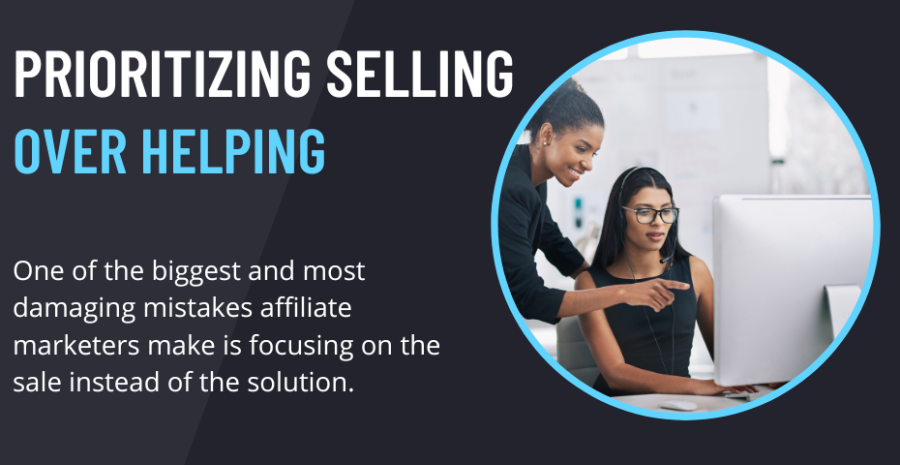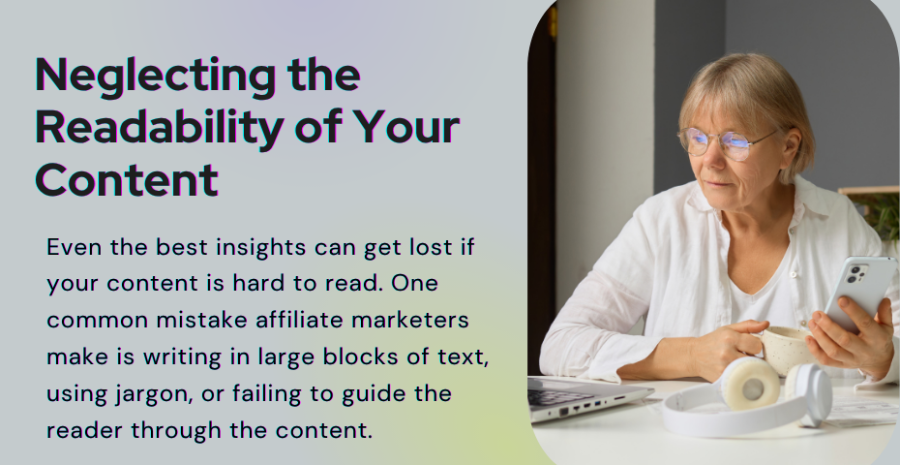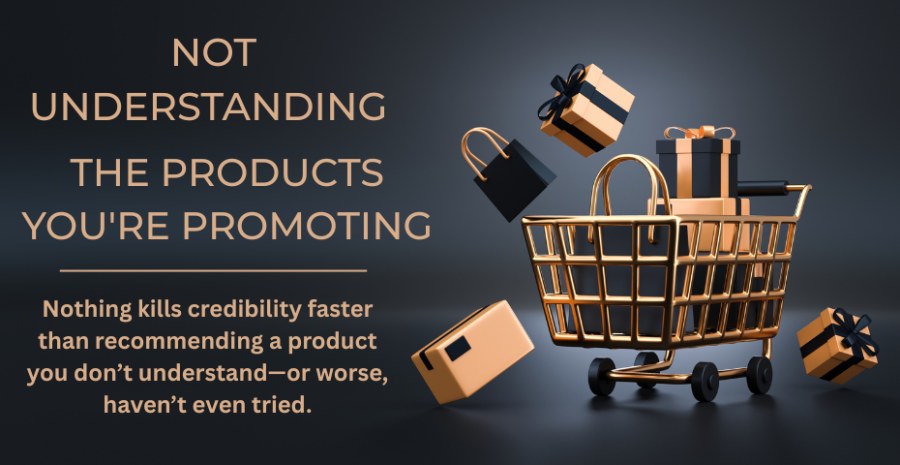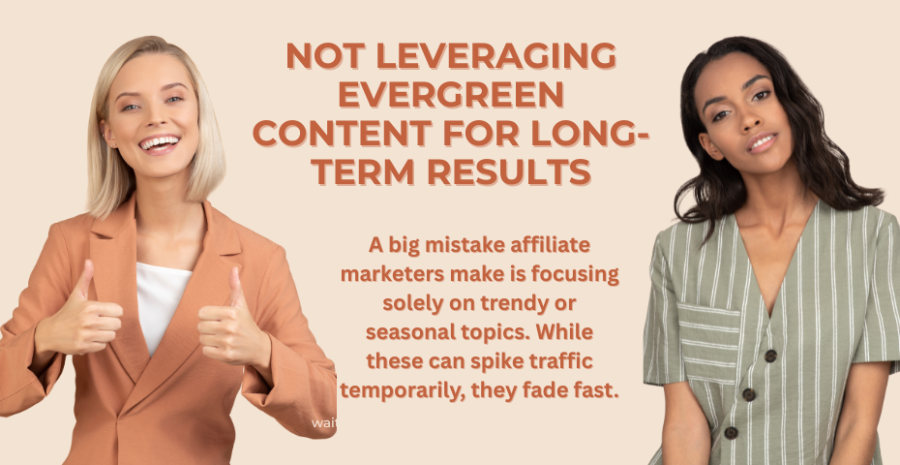
What Are the Most Common Affiliate Marketing Mistakes? 7 Pitfalls to Avoid for Long-Term Success

Affiliate marketing is often celebrated as one of the simplest ways to earn money online - and rightly so. With no need to create products or manage logistics, affiliate marketers can focus solely on content and audience-building.
But while the concept is simple, execution is where most people stumble. In their rush to earn commissions, many beginners—and even seasoned marketers—make critical mistakes that sabotage their credibility, traffic, and ultimately, their income.
These missteps are often unintentional, but they compound over time and prevent marketers from reaching their full potential. In today’s noisy digital world, trust is everything. Audiences can sniff out self-serving promotions, and search engines can easily flag low-value content.
The goal of affiliate marketing isn’t just to sell—it’s to serve. You’re supposed to help people make smarter buying decisions by providing relevant insights, comparisons, and guidance.
When marketers prioritize commissions over connection, they lose the very thing that makes affiliate marketing work: trust. And without trust, clicks don’t convert—and content becomes invisible.
The most common affiliate marketing mistakes aren’t about being unethical; they’re usually about being shortsighted. Maybe you ignore SEO because it seems technical. Maybe you rush content without understanding the product.
Maybe you focus on trends instead of timeless, evergreen strategies. Whatever the reason, these small cracks in your foundation can lead to big gaps in your results. The good news? Every mistake is fixable—if you know what to watch for and how to pivot strategically.
Whether you’re new to affiliate marketing or trying to take your results to the next level, this blog will walk you through the 8 most common mistakes that hold creators back.
From site speed to content quality to the importance of platforms like Markethive, we’ll explore not just what to avoid, but what to do instead—so you can build a sustainable, profitable, and trustworthy affiliate brand.
Let’s dive in and turn those missteps into momentum.

One of the biggest and most damaging mistakes affiliate marketers make is focusing on the sale instead of the solution. When your content is laser-focused on making a commission, it often reads as pushy, inauthentic, and ultimately unhelpful.
Visitors don’t want to feel sold - they want to feel guided. The most successful affiliates take the time to understand their audience’s pain points and craft content that genuinely helps solve problems.
Whether it’s a product comparison, tutorial, or buyer’s guide, the content must add value first and sell second. Helping builds trust, trust builds clicks, and clicks build conversions.
Trying to force a sale without providing context or usefulness may lead to a short-term win, but it kills long-term brand loyalty and search traffic.
So ask yourself: “Am I being helpful first?” If the answer is no, you’re not doing affiliate marketing—you’re just advertising.
And there’s a big difference.

Affiliate marketing isn’t a race—it’s a marathon. Yet many marketers churn out low-quality blog posts, videos, or reviews just to get links out as quickly as possible.
The problem? Low-quality content doesn’t rank, doesn’t build trust, and doesn’t convert. Sloppy grammar, vague descriptions, missing information, or overly generic advice screams “I’m only here for the money.”
High-performing affiliate content, on the other hand, takes time to research, structure, and polish. It includes detailed analysis, user insights, product pros and cons, and relevant visuals.
Quality content provides answers, not just filler. It respects the reader’s time and earns their attention. If you want your affiliate site to stand out, you must slow down and aim for depth, accuracy, and usefulness.
Google rewards it. Readers appreciate it. And your commissions will reflect it.

You could have the most amazing content in your niche, but if your site loads slowly, users will bounce before they even read a word.
Site speed is not just a technical detail—it’s a fundamental user experience factor that impacts everything from SEO rankings to conversion rates.
In affiliate marketing, attention is currency, and slow sites lose attention fast. Optimize your images, reduce plugin bloat, choose reliable hosting, and use caching tools to ensure your pages load quickly on all devices.
Beyond speed, make sure your site is easy to navigate. A cluttered design or confusing menu can frustrate visitors and lower your click-through rates.
Clean layout, readable fonts, and mobile responsiveness are non-negotiable.
You want users to stay, scroll, and click—so make it effortless for them to do so.

Even the best insights can get lost if your content is hard to read. One common mistake affiliate marketers make is writing in large blocks of text, using jargon, or failing to guide the reader through the content.
Readability isn’t just about grammar—it’s about structure.
Use short paragraphs, subheadings, bullet points, and visual cues to break up the content and make it scannable.
Most online readers skim before they commit, and poor formatting scares them away.
Also, write in plain language.
You’re not trying to impress with complexity; you’re trying to connect with clarity.
Tools like Hemingway or Grammarly can help ensure your writing is accessible.
The easier your content is to read and digest, the more likely readers are to trust your recommendations—and take action.

Nothing kills credibility faster than recommending a product you don’t understand—or worse, haven’t even tried.
Many affiliate marketers chase high commissions without fully grasping how the product works, who it’s for, or what its pros and cons are.
This leads to shallow, generic content that fails to connect with the audience’s actual needs. To stand out, you must go deep.
Study the product, test it if possible, and understand the customer journey. Read reviews, compare features, and think from the buyer’s perspective.
Authenticity matters. When you genuinely know what you're promoting, your content reflects it—and your recommendations carry weight.
People are more likely to buy from someone who clearly knows what they’re talking about. If you wouldn’t recommend it to a friend, don’t promote it to your readers.

Affiliate marketers often overlook the importance of search engine optimization (SEO), especially when they’re just starting out.
They assume good content is enough—and while it’s essential, it won’t matter if no one finds it. SEO ensures your content appears in front of the right people at the right time.
That means doing keyword research, optimizing titles and meta descriptions, using internal links, and structuring content for readability and relevance.
Tools like Ahrefs, Ubersuggest, or SEMrush can help identify keywords and gaps in your niche. SEO is not a one-time task—it’s an ongoing strategy.
It takes time, but the reward is long-lasting, organic traffic that fuels your affiliate business for years to come.
Ignore SEO, and you’re leaving traffic -and money -on the table.

A big mistake affiliate marketers make is focusing solely on trendy or seasonal topics. While these can spike traffic temporarily, they fade fast.
Evergreen content—topics that stay relevant over time—provides consistent traffic and income for the long haul.
Think tutorials, how-to guides, reviews of essential tools, or solutions to recurring problems in your niche. When you invest in evergreen content, you build digital assets that work for you 24/7.
One well-optimized, evergreen blog post or video can generate affiliate income for years. Trend content has its place, but the foundation of your strategy should be timeless value.
Evergreen content also ranks better in search engines and keeps bringing in new visitors—without the need for constant updates or reinvention.
.jpg)
Most affiliate marketers focus only on pushing products—but the real power lies in pulling people in through value.
That’s the essence of inbound marketing, and platforms like Markethive are redefining how affiliate marketing should be done.
Markethive is the premier hybrid social market network built specifically for entrepreneurs and marketers. It combines the power of a decentralized social media platform with a full suite of inbound marketing tools, including blogs, email autoresponders, lead capture pages, and crypto monetization.
Instead of spamming links or chasing followers, you attract prospects by offering real value—through education, insights, and community building.
Why is inbound marketing so important? Because people are tired of being sold to. They want to discover solutions at their own pace.
With Markethive, you create content that builds trust and captures leads organically. You build relationships, not just transactions.
You become the guide, not the pusher. And because it’s built on blockchain, your content and earnings are secure, transparent, and uncensorable.
Markethive rewards you for your engagement with Hivecoin, creating an additional income stream.
If you're serious about affiliate marketing and want a long-term platform that supports growth, automation, and community—all while respecting your independence - Markethive is your launchpad.
Affiliate marketing is a powerful pathway to online income, but success doesn’t come from shortcuts or spammy tactics—it comes from strategy, service, and smart execution. The most common mistakes marketers make aren’t about lack of effort—they’re about lack of awareness.
By understanding and avoiding these 7 pitfalls, you can move from frustration to focus, and from inconsistency to income. Selling without serving, writing without quality, ignoring SEO or speed, and promoting without passion—these are habits that lead to burnout and low ROI.
Instead, aim to be the affiliate marketer who respects your audience, understands your niche, and builds trust over time. Focus on evergreen content, useful insights, and clean user experience.
Learn the products you recommend. Write clearly. Think long-term. And above all, embrace platforms like Markethive, which empower you with the tools and reach needed to grow ethically and effectively.
Affiliate marketing isn’t about tricking people into clicking a link. It’s about showing up with answers, building digital assets, and positioning yourself as a trustworthy voice in your niche.
When you play the long game, avoid these common traps, and adopt an inbound marketing mindset, you’ll discover that affiliate marketing is more than just a business model—it’s a gateway to freedom, impact, and sustainable online income.
So take the time to do it right—because the rewards are worth it.
Your time to thrive is now. One step at a time.

About: Andries vanTonder (66)
Over 46 years selfemployed
He is a Serial Entrepreneur, an Enthusiastic supporter of Blockchain Technology and a Cryptocurrency Investor
Find me: Markethive Profile Page | My Twitter Account | My Instagram Acount | and my Facebook Profile.
